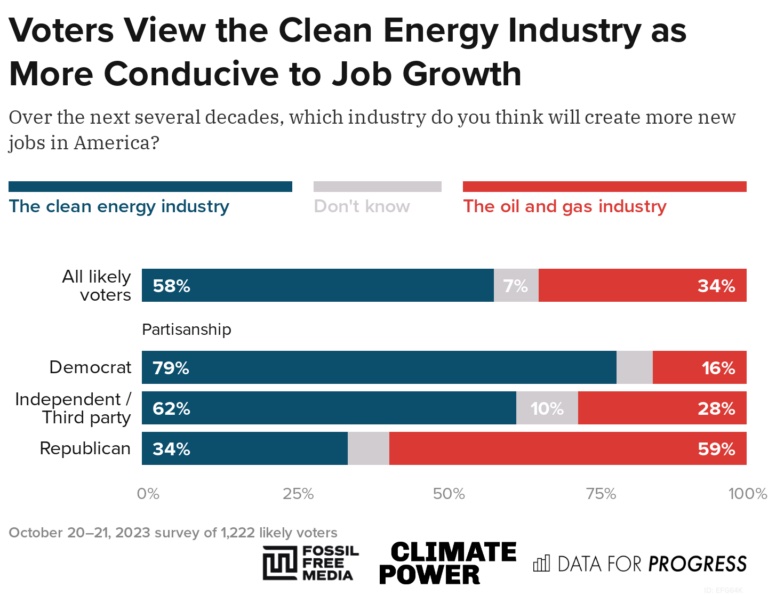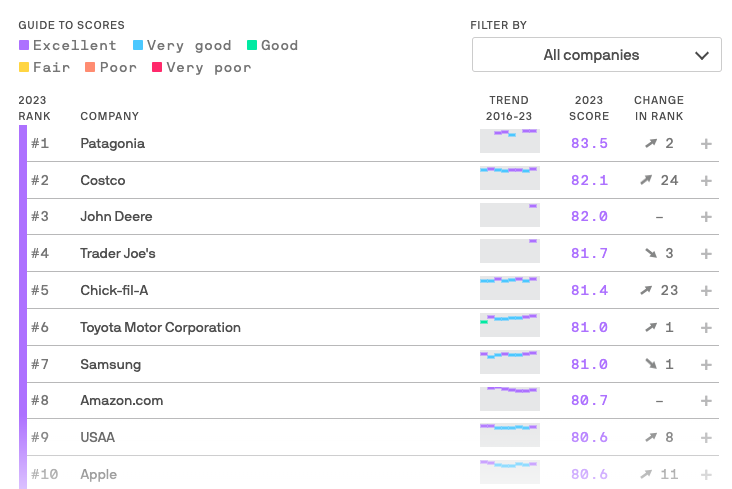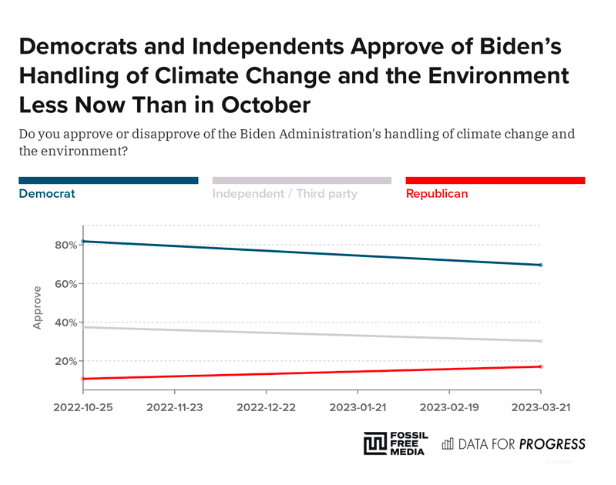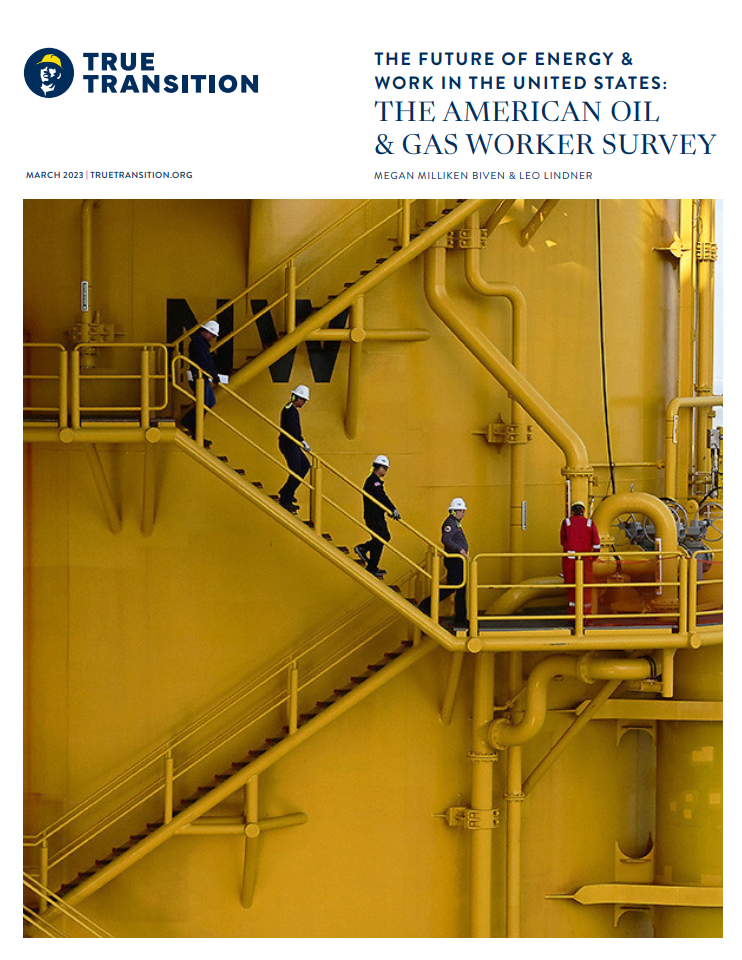Resources
Search below for resources covering the intersection of climate engagement, social science and data analytics.
RESULTS
POLL: Voters Decisively Reject ‘Drill, Baby, Drill,’ Blame Oil & Gas Companies, OPEC+ for High Gas Prices
Polling identified several key lessons for communicators keeping big oil and gas accountable, such as: 1) Making "polluters pay" is a unifying narrative. Framing accountability in terms of the oil and gas industry’s enormous damages to communities and their health, coupled with their inflated profits, can help depoliticize this issue for a wide range of voters. 2) Focus the blame from global context to specific companies. Don’t let big oil and gas use geopolitics as a scapegoat.
Voters in key states want stronger limits on methane emissions, and believe that implementing technology to limit methane pollution is more likely to create jobs than reduce them. By a 68%-26% margin, battleground state voters support stronger EPA limits on methane emissions from the oil and gas industry. By a 69%-27% margin, Pennsylvania voters support stronger EPA limits on methane emissions from the oil and gas industry. By a 66%-28% margin, Texas voters support stronger EPA limits on methane emissions from the oil and gas industry. By a 55%-41% margin, battleground state voters are more likely to agree that stronger methane pollution limits will create jobs than reduce jobs. By a 56%-42% margin, Pennsylvania voters are more likely to agree that stronger methane pollution limits will create jobs than reduce jobs. By a 58%-42% margin, Texas voters are more likely to agree that stronger methane pollution limits will create jobs than reduce jobs.
Patagonia tops the list of the country’s most respected brands. Fossil fuel companies - especially ExxonMobil and BP - fare poorly. Patagonia scored 83.5, an “excellent” score. Exxon was 82nd on the list, scoring 68.9, a “fair” score. BP was 92nd, scoring 63.5, a “poor” score.
Poll: Voters Do Not Want New Fossil Fuel Projects Prioritized on Public Lands
President Biden’s ratings on climate and the environment have slipped in recent months among Democrats and young voters. News about the Willow project drops his ratings among Democrats further, as voters - especially Democrats - don’t want to prioritize fossil fuel projects on public lands. By a 56%-35% margin, voters say that the federal government should prioritize clean energy projects over fossil fuel projects when allowing new energy projects on public lands. By an 80%-12% margin, voters support President Biden’s original campaign promise to take action against polluters who knowingly harm the environment or conceal information regarding health risks. By a 57%-32% margin, voters support President Biden’s original campaign promise to ensure a 100% clean energy power sector by no later than 2035.
The Future of Energy & Work in the United States: The American Oil & Gas Worker Survey
Cross sectional survey of 1,635 non-management oil and gas workers in the US revealed new insights and key themes relevant to a truly "just transition" from fossil fuels, including:
Environmental Polling Roundup - March 10th, 2023
This post includes climate and environment headlines, data points, and key takeaways from recent public polls - including polling about people’s willingness to talk about climate change, new polling on the East Palestine disaster, and a new industry-funded poll in New York State about the state’s Climate Act and residential gas.
The Fossil Fuel Industry’s Own Poll Found Most New Yorkers Support a Gas Ban in New Buildings
Polling commissioned by oil and gas companies shows that New Yorkers support climate action and want to phase out residential gas. 74% of New Yorkers support the state “aggressively moving to reduce greenhouse gas emissions”. 65% of New Yorkers support the goal of having 1 to 2 million New York homes heated with electric heat pumps rather than natural gas or oil-fueled furnaces by 2030. 65% of New Yorkers support the goal of electrifying 85% of New York homes and commercial buildings with electric heat pumps by 2050.
How to beat the ‘fracking frenzy’ — lessons from the campaign that ended fracking in Ireland
The successful Irish anti-fracking struggle offers key insights on community power building for anti-extraction movements all over the world. In 2017, community activists in Ireland mobilized a grassroots movement that forced the state to revoke fracking company Tamboran’s license and ban fracking. The first step towards defeating Tamboran in Ireland was building a movement rooted in the local community. Out of this experience, five key “rooting strategies” for local organizing emerged — showing how the resistance developed a strong social license and built community power. First, build from and on relationships. Second, foster ‘two-way’ community engagement. Third, celebrate community. Fourth, connect to culture. Fifth, build networks of solidarity. Four key political strategies include: find strategic framings; demonstrate resistance; engage politicians before regulators; focus on the parliament.
Environmental Polling Roundup - February 3rd, 2023
This post includes climate and environment headlines, data points, and key takeaways from recent public polls - including a new edition of Yale and George Mason's long-running "Climate Change in the American Mind" study that focuses on the politics and policy of climate change, as well as lots of new polling on gas stoves.
Poll: After Learning About Their Toxic Emissions, Americans Support Regulating Gas Stoves
Most Americans say they’re more likely to purchase an electric stove than a gas stove, and two-thirds support regulating the emissions from gas-burning stoves after reading about the harmful indoor pollution that they create. Most Americans (54%) would prefer to purchase an electric stove if they were in the market for a new stove, including majorities of both Democrats (57%) and Republicans (53%). After reading about harmful effects of gas stoves, people who said they would choose a gas stove as their first choice dropped from 36% to 27%.
Pagination
- Previous page
- Page 2
- Next page







